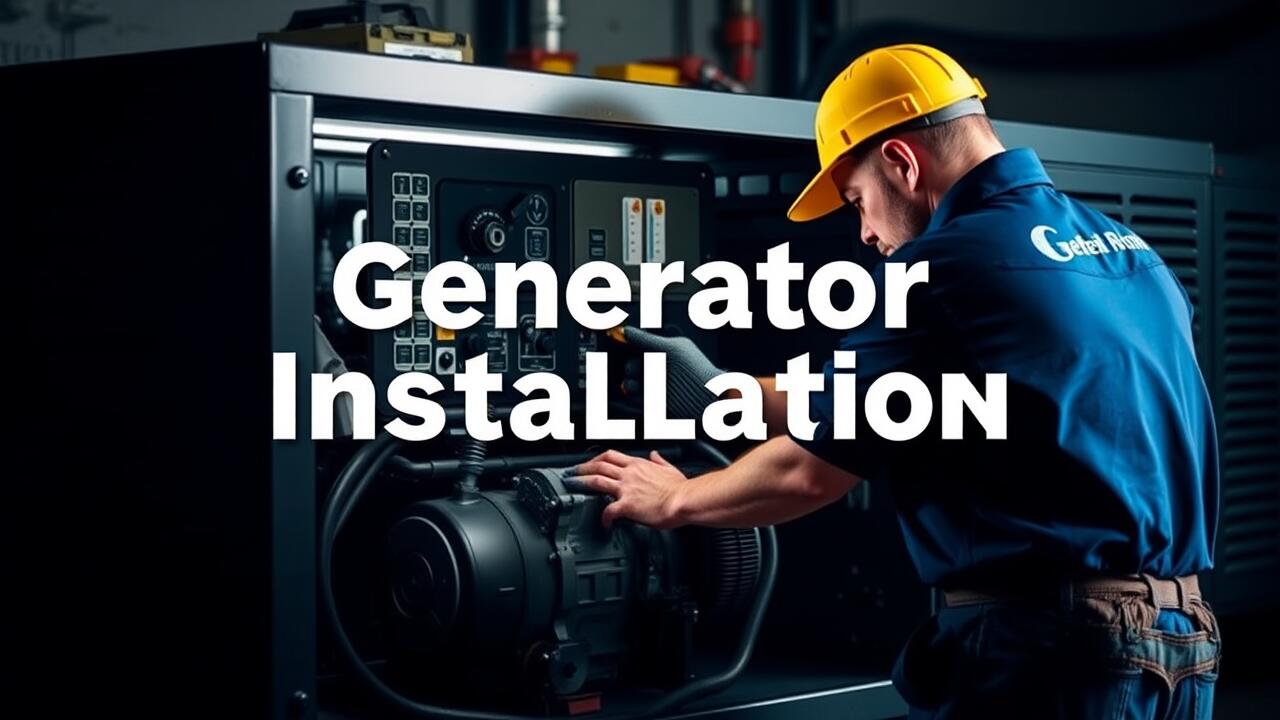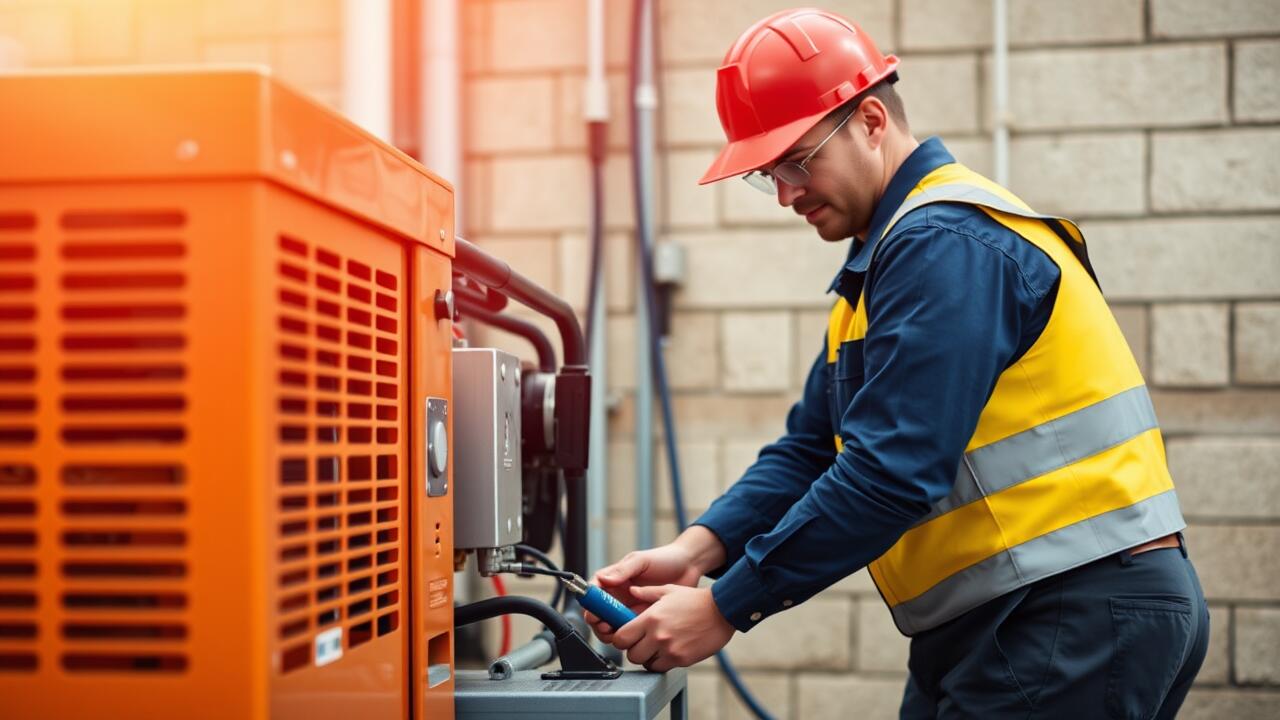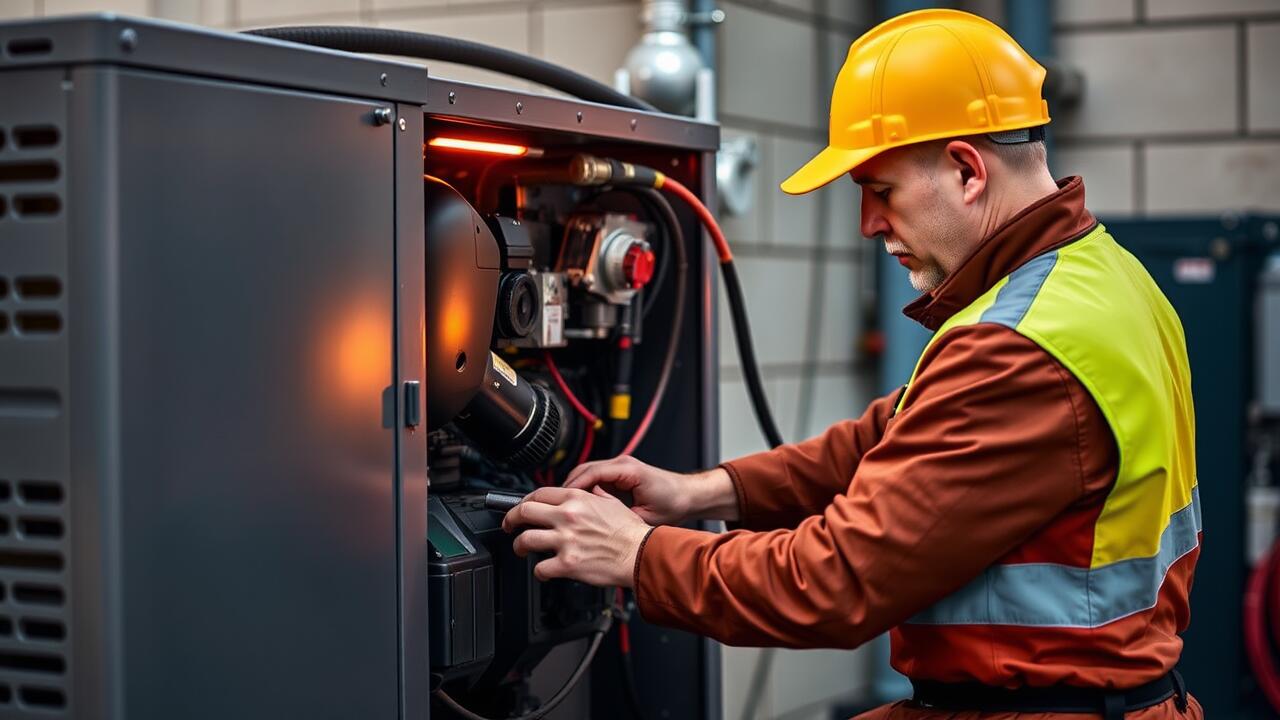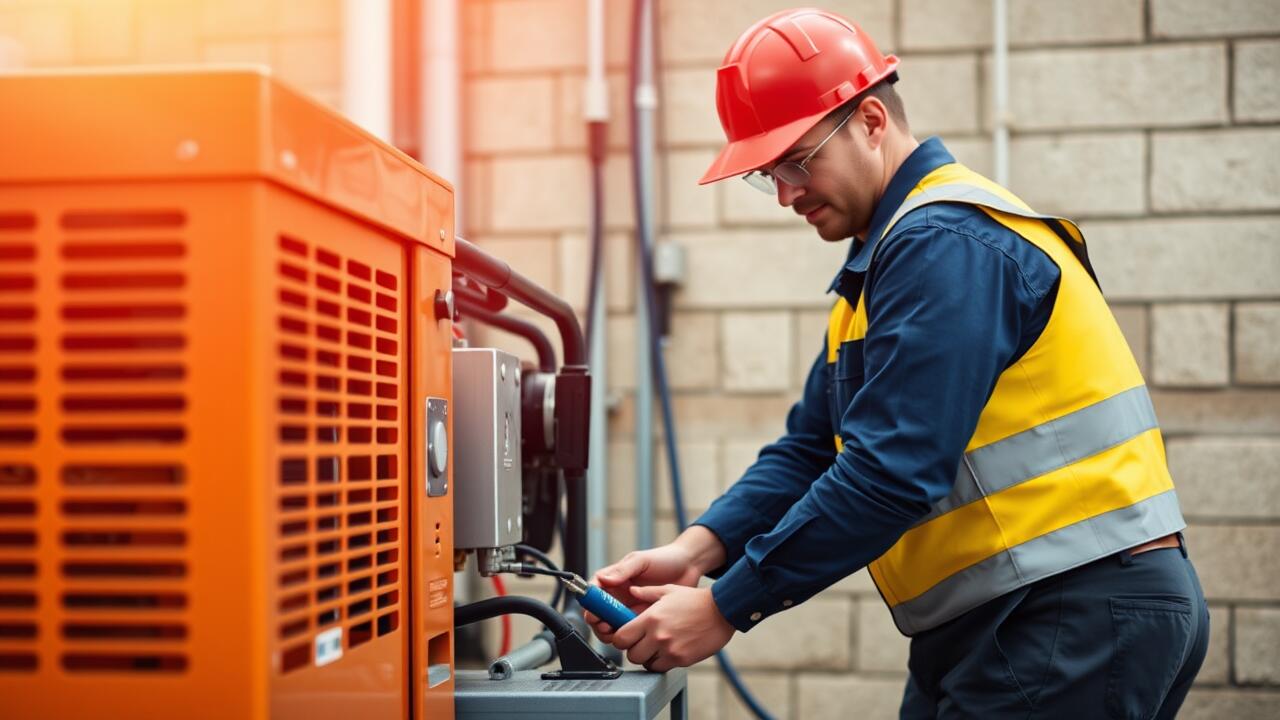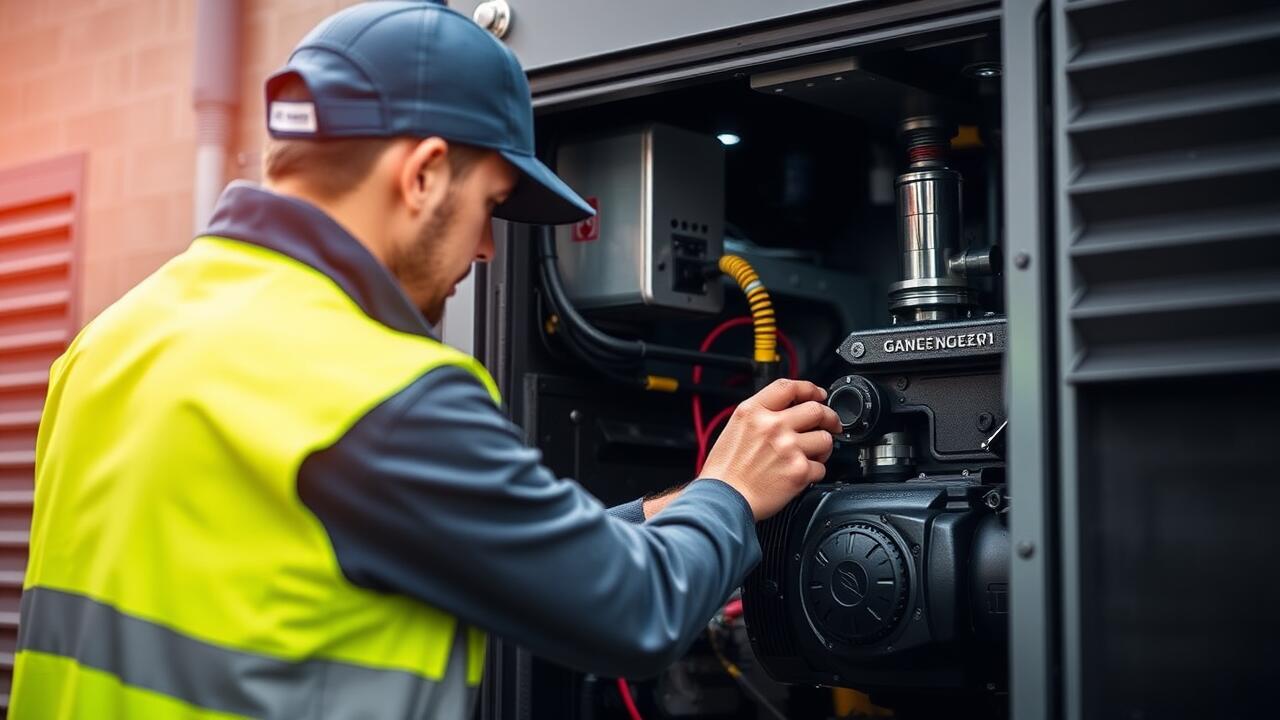
Fuel Source Considerations
Choosing the right fuel source for a whole house generator is essential for ensuring reliable performance and operational efficiency. Natural gas is often favored for its convenience and continuous supply, especially for homes already connected to municipal gas lines. Propane is a strong alternative, particularly in areas where natural gas isn’t readily available. Diesel generators are another option, commonly known for their robustness and fuel longevity, though they may require more extensive maintenance.
When considering generator installation in Clear Lake City, Houston, assessing the availability and cost of these fuel sources in your local area can significantly influence your decision. The specific needs of your household, such as power requirements and energy consumption patterns, will also play a critical role. It's important to evaluate the pros and cons of each fuel type, considering factors like installation complexity, ongoing fuel costs, and accessibility to ensure the right fit for your system and lifestyle.
Choosing Between Natural Gas, Propane, and Diesel
When considering a whole house generator, it's essential to evaluate the fuel source that best meets your needs. Natural gas is a popular choice because it connects directly to existing pipelines, offering a continuous and cost-effective fuel supply. Propane, while requiring a storage tank, provides flexibility and portability, making it suitable for areas without natural gas access. Diesel generators are known for their durability and efficiency, particularly in heavy-duty applications, but they often involve higher operating costs and require more maintenance.
The decision between these fuel types can significantly influence both installation and operational efficiency. Homeowners should consider the availability and accessibility of each fuel source in their location. In areas like Clear Lake City, Houston, generator installation typically involves assessing local regulations and infrastructure. This assessment helps ensure the selected fuel source aligns with both the homeowner's preferences and logistical considerations inherent in generator installation.
Typical Installation Timeframe
The installation timeframe for a whole house generator can vary significantly based on several factors. Typically, homeowners can expect the process to take anywhere from 10 to 30 hours. This range depends on the complexity of the installation, the type of generator being installed, and any existing infrastructure that may need adjustment. Licensed professionals often streamline the process, ensuring that necessary permits and local regulations are adhered to, which can impact the overall timeline.
In Clear Lake City and Houston, factors such as accessibility, site preparation, and the chosen fuel source can also affect installation duration. For example, a natural gas generator may require additional plumbing work, extending the timeline. Homeowners should consult with experienced contractors to receive a more tailored estimate for their specific circumstances, especially when seeking services like Generator Installation Clear Lake City, Houston.
Average Hours Required for Installation
The installation time for a whole house generator can vary significantly based on several factors, including the generator's size and the complexity of the setup. In general, homeowners can expect the installation process to take anywhere from 5 to 10 hours. This timeframe includes the electrical work required to ensure the generator can be connected seamlessly to the home’s power system. Local regulations and permits can further affect the duration of the installation, especially in areas like Generator Installation Gulfton, Houston.
If homeowners opt for a professional installation, the timeline may be more predictable as experienced technicians can efficiently navigate possible hurdles. DIY installations might take longer due to inexperience and the necessity of ensuring all connections are secure and safe. Regardless of the route chosen, careful planning is essential for maximizing efficiency and guaranteeing that the generator operates correctly once installed.
Professional vs. DIY Installation
Choosing between professional installation and a DIY approach for generator installation can significantly impact the overall process. Professional installation often ensures that the generator is set up correctly and complies with local codes. Companies specializing in generator installation, such as those in Generator Installation Clear Lake City, Houston, typically have the experience and tools necessary to handle the complexities involved. They conduct thorough assessments to determine the best placement and configuration for the generator, taking into account site-specific factors.
On the other hand, a DIY installation might appeal to those looking to save on labor costs and enjoy a hands-on project. It offers the opportunity to learn about the system and get involved in the installation process. However, it also carries risks, such as potential miscalculations or improper connections that could lead to safety issues. Without professional guidance, ensuring compliance with regulations and standards may be challenging. Weighing these factors is crucial when deciding on the best approach for installing a whole house generator.
Pros and Cons of Each Approach
Choosing between professional installation and a DIY approach for your whole house generator involves weighing several advantages and disadvantages. Professional installers often bring experience and expertise, ensuring that the generator is correctly connected to existing systems and meets local codes. They can navigate any unforeseen challenges efficiently, minimizing the risk of costly mistakes. However, hiring professionals can increase overall costs, potentially putting this option out of reach for some homeowners in areas such as Generator Installation Gulfton, Houston.
On the other hand, a DIY installation can be a cost-effective alternative for those with adequate skills and tools. This approach allows for greater control over the process and the ability to adhere to a preferred schedule. However, it comes with significant risks, including potential errors that may lead to safety hazards or system inefficiencies. Furthermore, without professional guidance, navigating regulatory requirements and obtaining necessary permits may prove challenging, complicating the installation process.
FAQS
How long does it typically take to install a whole house generator?
The typical installation timeframe for a whole house generator can range from 6 to 12 hours, depending on various factors such as the complexity of the installation and the type of generator being used.
What factors can affect the installation time of a whole house generator?
Factors that can affect installation time include the type of fuel source being used (natural gas, propane, or diesel), the location where the generator will be installed, any necessary electrical work, and whether permits are required.
Is it faster to install a whole house generator myself, or should I hire a professional?
While a DIY installation may seem quicker, hiring a professional is generally recommended as they have the expertise and tools to ensure the installation is done correctly and safely, which can ultimately save time and prevent issues.
Can I install a whole house generator in a single day?
Yes, it is possible to install a whole house generator in a single day, especially if you have a straightforward installation and a professional team with experience. However, more complex installations may take longer.
What are the advantages of hiring a professional for whole house generator installation?
Hiring a professional can provide various advantages, including ensuring compliance with local codes and regulations, reducing the risk of installation errors, and often providing warranties or guarantees on the work completed.
